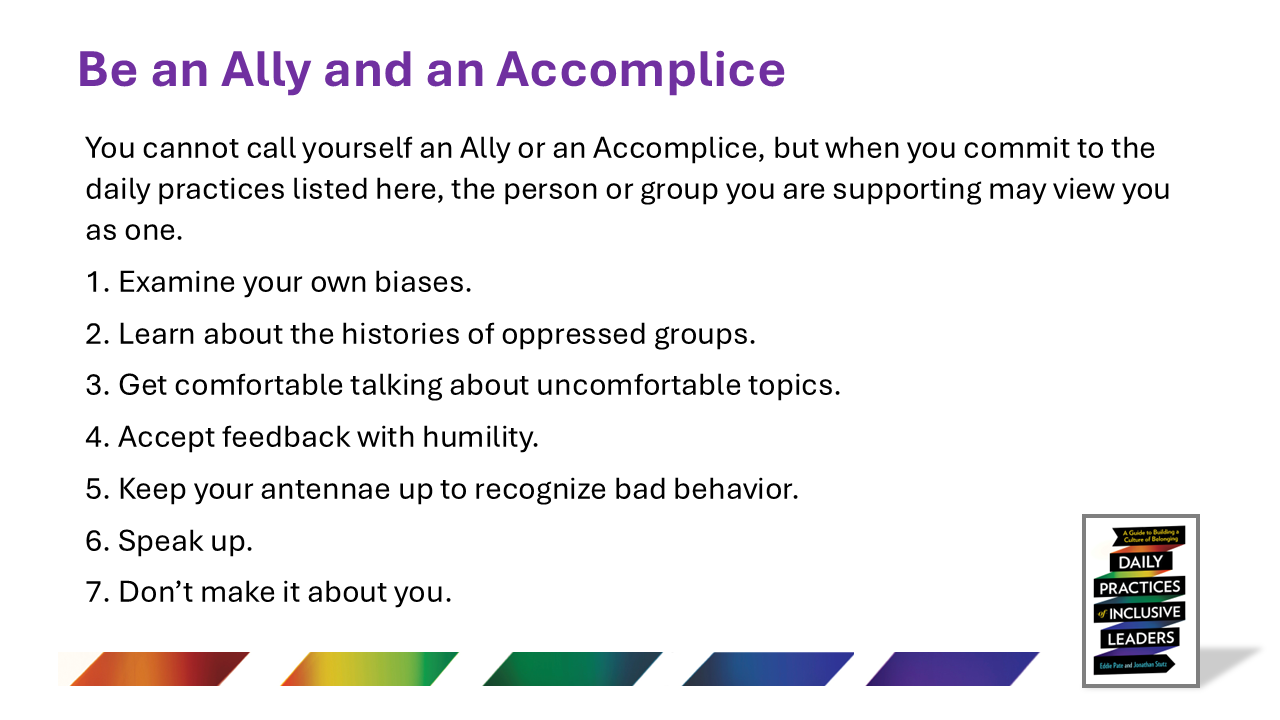BE AN ALLY AND AN ACCOMPLICE

Consider who gets interrupted in a meeting, who gets chastised for taking a controversial or contrarian position, whose ideas and achievements get appropriated, and whose opinions are categorically questioned or discounted. Consider the Black man who is told in a meeting to “settle down” when exhibiting enthusiasm during a robust discussion. Think of the person with autism who’s chastised for not making eye contact or for their difficulty reading social cues. Or the hiring manager who always uses male pronouns in conversation, assuming the candidate hired is going to be a man. These are but a few examples of opportunities for allyship or being an accomplice.
An ally is someone who supports individuals and groups of people who are victims of inequities. More recently, the term accomplice has arisen to describe someone who risks their own standing to speak up when inequities occur. Showing up as either is a noble and selfless act. Doing so is about supporting others who, in many instances, have had a different lived experience than you have and may lack the power and privilege that you’ve experienced.
There is, however, a larger role for people born with the most inherent privilege and power. If you are a straight, white, able-bodied, neurotypical cis male born into wealth, for example, it’s important to acknowledge the privilege those aspects convey to you in most societies. You can choose to use that privilege for your own benefit, or you can spend it on lifting up those who were not born with the same societal advantages. Those of us born with the most privilege have the greatest responsibility to drop pebbles that rock the boat. In the words of Toni Morrison, “If you are free, you need to free somebody else. If you have some power, then your job is to empower somebody else. This is not just a grab-bag candy game.”
Being an ally is of significant value in the moment to the people you are supporting, but the long-term value comes from modeling allyship behavior for everyone around you to see, time and time again. Pebble by pebble, you are showing what it means to be inclusive and making it okay for others to be inclusive as well. Further, you are making inequitable behavior less acceptable because offenders know that it will not go unnoticed. These are the ripples that lead to building a culture where everyone feels safe to stand up for victims of inequities.
This article is an excerpt from our book, “Daily Practices of Inclusive Leaders.”
If you found this article helpful and want to learn more order our book here: inclusivepebbles.com/order/